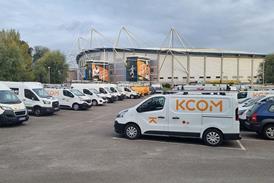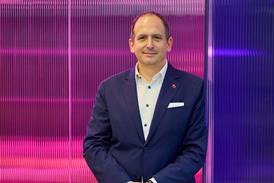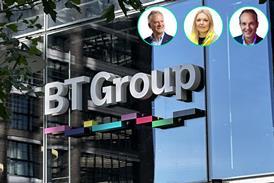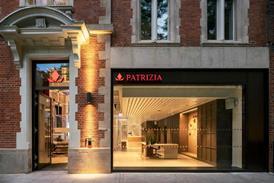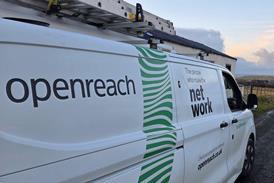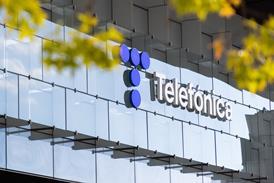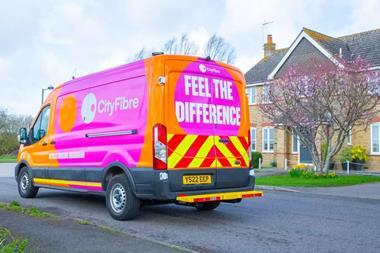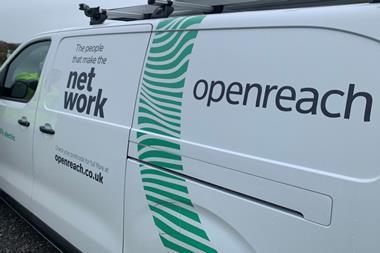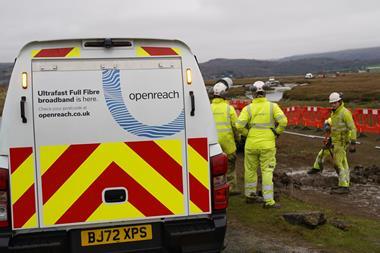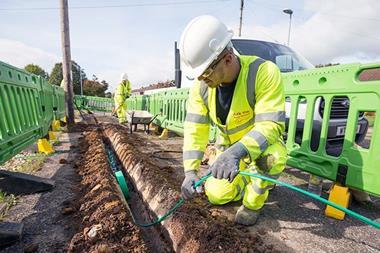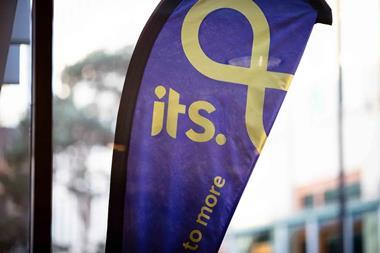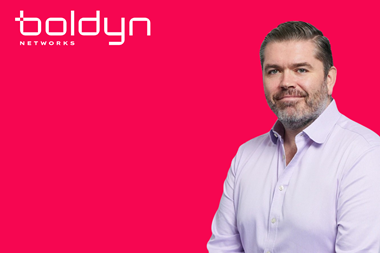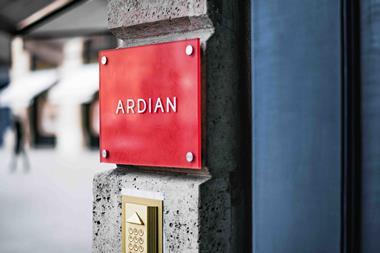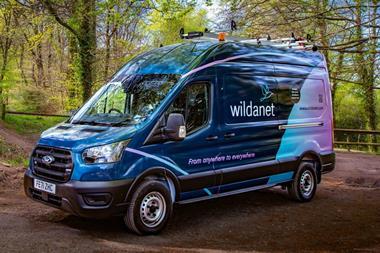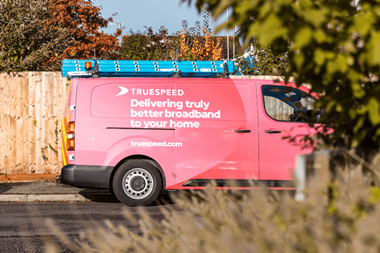- ‘BT’ called out for obstinate, irrational, anti-competitive behaviour that penalises own shareholders — needs to prioritise copper shutdown to deliver fibre payback, and start serving consumers outside Openreach footprint.
- CityFibre actively tracking and profiling M&A targets deemed scaled and operationally compatible, while maintaining NetCo differentiation, as fibreco outriders now focus on take-up, execution and consolidation.
- Calling for level playing field in retail as well as wholesale segments — fibre challengers still ignored by big-three ISPs boasting 75% market share.
- Regulator warned not to sit on laurels, or risk UK reversion to market inertia.
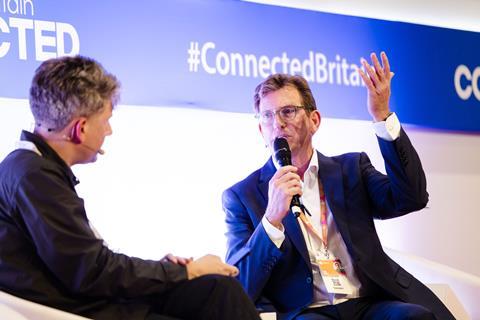
In this article
1. Mesch: risk on, consolidation on… top players on watchlist2. The consolidation three-step
3. Just keep on digging and expecting the financials to change
4. Openreach’s zero-distraction fibre mission
5. 75% market lockout — waiting for the Sky to fall
6. Just play fair… and don’t let the regulator sleep at the wheel
At the 2023 edition of UK industry gathering Connected Britain, the largest fibre-only player CityFibre vied for prominence with incumbent BT Group and its Openreach subsidiary. Covering the event extensively, TelcoTitans caught up with CityFibre’s CEO Greg Mesch and colleagues to discuss perspectives from their conference sessions.
CityFibre and its challenger peers are navigating a business and public policy environment that has been lauded for success since the last decade in priming major global investment that has scaled the UK’s still accelerating fibre network deployment, and delivered vigorous competition credited with fuelling innovation and raising standards for all players and end users.
Praise is not unvarnished, with CityFibre’s own wholesale configuration optimised to mirror an idiosyncratic feature of the UK: an incumbent telco with a somewhat arms-length wholesale access arm. In another country, CityFibre would likely have echoed the vertically integrated model typical of an incumbent.
“ So you have the Openreach phenomenon. I don’t know anywhere [else] in the world where ‘an Openreach’ exists. That’s the creation of the regulator back in the late-90s, and the result is nobody can compete, so you ended up with a significant market power — a re-regulated entity. ”
“ Our competitor is not a fully integrated model; it is a wholesale model. Therefore, building a scale wholescale competitor is the only way to introduce competition to Openreach. ”
Mesch.
As with other UK fibre challengers at Connected Britain that present themselves as well placed operationally and financially, CityFibre has taken stock in the aftermath of the multiple systemic shocks of the last few years and come to terms with uncertainty being the new certainty. It is now poised not just to redouble efforts to be the leading fibre challenger in scale, technical excellence and service, as well as maintain an active M&A agenda, while reiterating its wholesale–NetCo differentiation.
Mesch: risk on, consolidation on… top players on watchlist
Market consolidation among UK altnets was a major topic of discussion at Connected Britain industry, with Mesch saying “you can be a buyer, you can be seller — consolidation is inevitable”.
“ What happens is when debt is virtually free is they’re willing to build. And as soon as debt has to be expensive, everybody consolidates. So we’re in a natural consolidation cycle. ”
Mesch.
Clearly seeing itself as a driver of fibre network consolidation, CityFibre is realistic that it could itself become prey, although recent rumours involving VMO2 do not seem to have proved very solid. In keynote sessions, Mesch teased about a combination with Openreach, while counterpart Clive Selley was dismissive of any prospect of the incumbent veering from its now obsessive fibre mission, whether for some kind of “amalgam” with other players or to consider possibility of a spinout under BT’s incoming activist CEO.
Mesch added that CityFibre’s board and investors are now looking seriously at potential merger targets: “I think we’ve probably crossed the bridge: it’s probably a good time to be active in the consolidation market”.
While having originally been built on multiple acquisitions, it is only now that potential targets again appeal for CityFibre, having become big enough to move the dial based on scale and footprint compatibility. Timing is also considered opportune, with “crisis” translating to “opportunity”, notably due to now-scarce capital.
“ To reaffirm, [we’re] looking at the altnet space in a more positive light: consolidation is probably more in our future than less. Two years ago, we wouldn’t have thought about buying… Altnets have followed common sense to avoid the inefficient overbuilding of each other’s networks. This means that everybody’s been sequencing their assets in a good way so the consolidation can work. ”
Mesch.
In terms of identifying potential merger targets, Mesch revealed that CityFibre is tracking a set of larger possible targets, prioritising the passive layer “first and foremost”.
“ [Passive layer first:] Is it pure fibre? Is it split in the same ratios we do? Is it in an architecture that is the same as ours? Then, we look at the active layer: do we need to change your equipment or can we use your equipment? And then the third layer is the OSS/BSS systems; same thing: we take a look at all and each of those layers. And then we rate them [on a score of] one to five and, obviously, if there’s any that has five by five, it’s a perfect fit. ”
Mesch.
Mesch also reiterated that CityFibre’s strategy will continue to focus on the wholesale market, even if was to acquire a vertically integrated altnet, thus essentially maintaining its wholesale or NetCo model.
“ If we do any acquisition of an altnet, we become a retailer, because it’s vertically integrated. So, for a period of time, we’d become a retailer, but our view would be that we [would then] separate the retailer out as a standalone. We could sell those retailers off and remain as a wholesaler. ”
Mesch.
The consolidation three-step
Also speaking at Connected Britain was Darren Baythorpe, CEO of business broadband provider ITS Technology Group, who said that recent economic turbulence was creating challenges that are accelerating altnet consolidation.Perhaps reminiscent of the UK’s NTL–Telewest cable operator rollup of around twenty years ago that ultimately led to Virgin Media, Baythorpe envisages consolidation occurring in three stages, with the first being acquisition of “distressed” players, which has already started. The second, he predicts, will occur in 2024–25, and be characterised by mergers and acquisitions made for asset growth. The final stage, he believes, will be the emergence of “big” fibre players around 2028–29.
Dana Tobak, founder and CEO of Hyperoptic, accepted that Baythorpe’s premise represented a “reasonable structure”, but added that attempting to guess the timescales of any forthcoming consolidation was not possible — “fundamentally, I don’t think any of us can see how this market will play out and the timing of any M&As”. She was also quick to distance herself from the topic of ‘distress’, although this seemed generally accepted for other unidentified players, saying “we have probably the largest revenues of all the altnets, and from that perspective we are absolutely in the positive zone, so for me ‘distress’ is not in our future”.
The overall fibre challenger message emanating from Connected Britain seemed to be of players on stage being adamant that they are in good shape operationally and financially, optimistic, and fully conversant with current conversations that prioritise take-up and competence over build-out. There was admission that the last twelve months or more have been challenging on macro and micro levels, but the outlook now seems clearer and somewhat re-energised, with the fittest not just looking to survive but also to thrive. One critical factor is financial confidence, such as firm funding and clear trajectory, which all tended to claim. Another development is that supply chain challenges seem to have faded as a major concern.
Mesch: BT’s separation issues, strategic irrationality
Just keep on digging and expecting the financials to change…
From a situation that even recently could be lambasted as a copper and cable network-and-a-half throwback, the UK’s altnet-propelled full-fibre revolution has effectively fuelled creation of three currently comparably sized gigabit-capable network blocs in the ten million premises-passed scale, with incumbents reinvigorated, and seeming impetus to near-fully serve the entire country by the turn of the decade.
Now, with the fibre sector poised in an ironic state of operational scale and macroeconomic stress, the country is being told by challenger stakeholders that it needs to lock in a course that embeds the next stage of large and lasting socioeconomic benefit.
CityFibre says that all challengers and their stakeholders are really seeking from politicians and regulators, aside from continuity and predictability, is reasonableness.
Inevitably, the finger points most firmly at BT Group for stifling competition, though, perhaps surprisingly, CityFibre can seem most scathing of the BT Consumer retail ISP business and corporate strategy to shun altnets, even where no fibre from Openreach is available, and in spite of claimed lower access prices and superior service metrics. This, the fibreco argues, ill-serves both BT’s investors and the nation, and is criticised as irrational, self-harming, and intended only to stifle competition.
Openreach does not escape, with its supposed structural separation deemed unfit for purpose, and its regulatory mantle inadequate for such a dominant player — effectively “trapping” ISP customers through aggressive pricing, according to Mesch — as well as strategy dismissed as now too-dominance obsessed. He also noted that BT Consumer and Openreach do not have separate capital structures, nor distinct budgets.
“ You can’t say, as a regulator, ‘we have structurally separated Openreach and BT’, but then they operate as one unit. It’s just irrational. It’s not a level playing field.
It’s the incumbent’s strategy of ‘spray and pray’: they say ‘we’re going to build everywhere’ and spray build projects all over the country, praying that this threat will destroy altnets’ ability to raise money, and chase competition out of the market. ”
Mesch.
Mesch argues that a more rational BT would be more selective and moderated in both fibre build and procurement, with shareholders currently condemned to poor returns until BT shuts off its power-hungry copper networks, “but they can’t do that unless they ‘focus’ their builds to drive density and give up on the spray and pray tactic”. He went on to cite that Openreach currently intends to shut down just 103 of its 5,500 exchanges by 2030 — less than 2% of the total estate.
He also questions the logic (as well as competition concerns) of BT Consumer refusing to procure fibre connections from altnets that are delivering on price, service and reach — including offering coverage of rural and other areas not served by Openreach. To an extent, these arguments also apply to VMO2, while Sky is seen understandably taking full advantage of Openreach largesse (before ultimately succumbing to altnet propositions).
For Mesch, if BT Consumer started to consume fibre from challengers such as CityFibre, and Sky started to also consume from altnets, then he would be “fine” with BT and Openreach being left as they are currently structured. If not, he wants a big stick brought out.
“ If BT Consumer is staying 100% connected to Openreach, then they should be split up because, by definition, that means that they’re not structurally separated. ”
Mesch.
Openreach’s zero-distraction fibre mission
Speaking on the same Connected Britain keynote sessions as Mesch was Clive Selley, CEO of Openreach, who made it emphatically clear that he rejected any moves to include Openreach in forthcoming rounds of market consolidation, either in the form of acquirer or entering into some kind of “amalgam” with other players, and that his business is single minded in its prioritising creation a national full-fibre network.“ We’re on a mission to change… to a ‘full-fibre’ company; we’re doing that at breakneck speed. I don’t want distractions of any form. Messing about the structure, to my mind, represents a distraction and a reason for not focusing on the mission…
I have one architecture, one set of components, one set of delivery processes, one set of provisioning processes, one set of repair processes. And if you form an amalgam from other companies, that paradigm is shot, basically. ”
Selley.
75% market lockout — waiting for the Sky to fall
With fibre adoption now prioritised over rollout, attention is particularly focused on the retail dominance of the UK’s internet service providers, with the top three (BT, Sky and VMO2) controlling as much as three-quarters of the market but procuring essentially no fibre services from altnets, even where challengers have exclusive coverage (including rural areas). Coincidentally, Openreach alone controls around three-quarters of all broadband connections at a wholesale level.
Conversely, Mesch pointed to the other top-five major retail ISPs, TalkTalk and Vodafone UK, both of which are fully integrated into CityFibre’s wholesale infrastructure and are giving it a very significant proportion of their fibre connections.
He remains frustrated that Openreach still maintains an effective monopoly on Sky’s retail business, despite CityFibre offering faster products, more attractive pricing and a network reaching millions of homes not served by Openreach’s fibre rollout.
Nonetheless, Mesch is optimistic that Sky will join CityFibre’s network, not least because of its increasing role in the government’s £5bn Project Gigabit programme to bring gigabit connectivity to hard-to-reach rural areas that would otherwise not be addressed by commercial build plans.
To date, CityFibre has won four Project Gigabit delivery contracts in Cambridgeshire, Hampshire, Norfolk and Suffolk, totalling £388m in subsidies. On completion, CityFibre considers itself likely to be the only fibre network serving these premises and, as such, the only platform capable of supporting ISPs in upgrading existing and acquiring new customers.
“ We’d love to have Sky on board and it makes sense for them to use us: we’re faster, cheaper and already outside the doors of millions of their existing and potential customers… We will always offer a discount over Openreach, no matter where they move the price — and that’s what a challenger does. ”
Mesch.
| ISP | Connections (million) | Market share (estimated) | Connectivity service providers |
|---|---|---|---|
| Notes: * Ofcom market data 31Dec22. ** Estimated. *** 31Mar23. **** 30Jun23. Market shares for larger players may be overestimated as based on Ofcom market sizing that does fully factor in B2B. Smaller and specialist ISPs may consequently be underrepresented for both consumer and B2B. Sources: companies; Ofcom; TelcoTitans. |
|||
|
BT Consumer * |
9.2 |
32.8% |
Openreach |
|
Sky Broadband ** |
6.2 |
22.1% |
Openreach |
|
Virgin Media O2 **** |
5.8 |
20.7% |
Virgin Media O2, Nexfibre (parents’ Liberty Global and Telefónica’s fibreco joint venture with InfraVia) |
|
TalkTalk ** |
4.0 |
14.3% |
CityFibre, Openreach |
|
Vodafone UK **** |
1.3 |
4.6% |
CityFibre, Openreach |
|
Other ** |
1.5 |
5.4% |
|
|
Total connections* |
28.0 |
||
|
Openreach wholesale *** |
21.5 |
76.8% |
|
|
Openreach FTTP (passed) ** |
11.5 |
||
|
Altnet FTTP (ready-for-service) *** |
7.2 |
||
Just play fair… and don’t let the regulator sleep at the wheel
CityFibre has consistently argued against the Ofcom-permitted Equinox wholesale pricing offers introduced by Openreach in response to increasing competition. While unsuccessfully challenging the schemes, CityFibre claims these have been designed with the express intention of ‘trapping’ ISPs, thereby cutting off swathes of the market from challengers.
“ That’s a structural problem in the industry [and] these structural problems are ultimately only solved by the regulator”
Mesch.
Put simply, CityFibre is calling out the danger of BT and VMO2 successfully indulging their natural instincts to stomp on competition and recapture their historic semi-duopoly.
This scenario is presented as a lose–lose–lose for all, with incumbents reverting to woeful inertia, UK innovation and growth drivers numbed, and consumers abandoned to pay more for less.
Looking to the future, Mesch said Ofcom had performed well in terms of initiating competition for fibre in the UK, but now needs to change its approach to enable competition to drive the market onto the next stage. “They’ve done a good job with the spark, but the spark, you don’t want to go out. You want to turn it into a sustained flame”.
Topics
- BDUK (Project Gigabit)
- BT Consumer
- BT Group
- BTwatch
- Calix
- CityFibre
- Clive Selley
- Connected Britain
- Dana Tobak
- Darren Baythorpe
- David Tomalin
- Elsa Chen
- Events
- Eventwatch
- Fibre (FTTC/FTTP)
- Fibre Challengers
- Greg Mesch
- Hyperoptic
- Infrawatch
- Interview
- Openreach
- Sky UK
- Strategy & Change
- TelcoTitans Industry Content
- UK Fibre Challengers
- United Kingdom (UK)
- Virgin Media O2 (VM O2)









